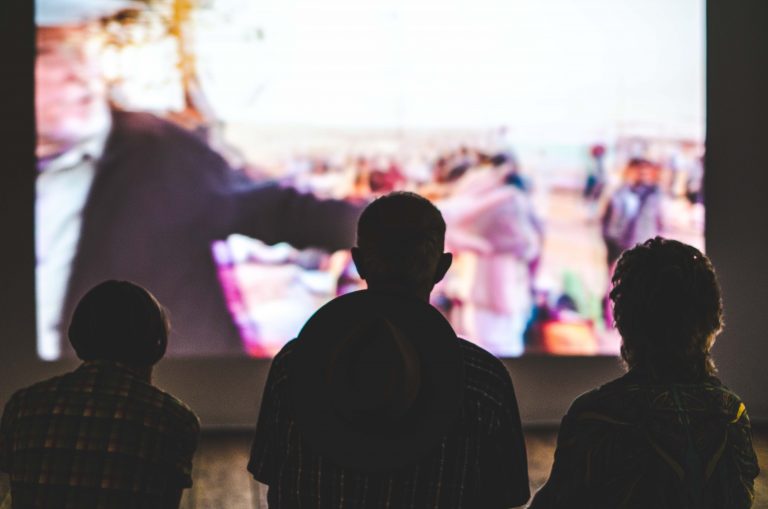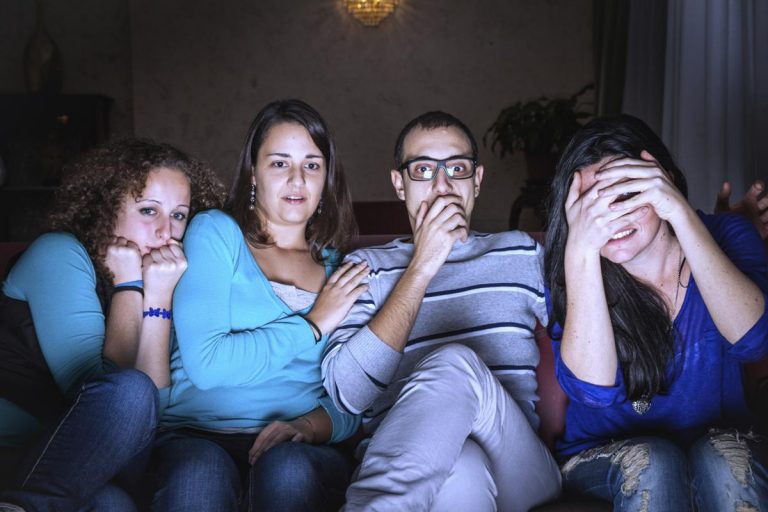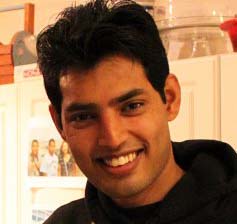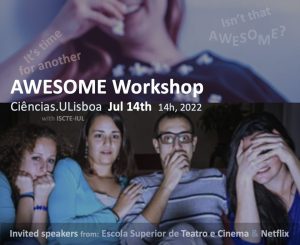AWESOME' 2022
Workshop
Thursday . July 14 at 14h
Ciências . ULisboa . C6 . 6.2.48



- About
- Program
- Invited Speakers
- Registration
- Photos
The FCT AWESOME project (PTDC/CCI-INF/29234/2017) - Awareness While Experiencing and Surfing On Movies through Emotions - aims to investigate the emotional dimension of movies, to provide support for the classification, access, navigation and visualization of movie collections, not only by genre, rating, etc. but based on the emotions expressed in their content and felt by the viewers, while and after watching movies. This holds the potential to increase emotional awareness and empower users regulating emotions when accessing and watching movies and videos.
These AWESOME workshops intend to present the project context and results, promoting interaction, debates and exchange of experiences among all participants, the scientific community, and possibly industry players and general public. Invited speakers from cinema production, teaching, processing and delivery, medical sciences and emotion recognition areas share their experience and expertise, aligned with presentations by the project team in the different areas of research, including: psychology of emotions, biosensors, emotion recognition, machine learning, and interactive media.
| 14:00 | Opening Session Teresa Chambel, LASIGE, Faculdade de Ciências, Universidade de Lisboa Patrícia Arriaga, ISCTE- Instituto Universitário de Lisboa, CIS-IUL |
| 14:15 | Invited Talk 1 - Emotional Mechanisms of Subversion in Cinema: the Horror Film Among Other Genres Paulo Leite, Escola Superior de Teatro e Cinema, Portugal |
| 15:00 | Session 1 - Viewers' Emotional Preferences and Emotion Recognition Using Biosensors |
| Why Do We Watch? Patrícia Arriaga and Nuno Piçarra, ISCTE - Instituto Universitário de Lisboa, CIS-IUL | |
| How Many Emotions Does a Movie Classification System Need? Nuno Piçarra and Patrícia Arriaga, ISCTE - Instituto Universitário de Lisboa, CIS-IUL | |
| Sustained Attention Detection System Bárbara Costa and Octavian Postolache, ISCTE - IUL and Instituto de Telecomunicações | |
| metaFERA: A Meta-Framework for Creating Emotion Recognition Frameworks for Physiological Signals João Oliveira, Soraia M. Alarcão, Teresa Chambel and Manuel J. Fonseca, LASIGE, Fac, de Ciências, Univ. de Lisboa | |
| 15:40 | Coffee Break |
| 16:00 | Invited Talk 2 - Audio Visual Storytelling through the Lens of Affect Subhabrata Bhattacharya, Netflix, USA |
| 16:45 | Session 2 - Content Emotion Recognition and Machine Learning Approaches |
| Audio Classification: Finding the Right Model or the Right Dataset? Thibault Langlois, LASIGE, Faculdade de Ciências, Universidade de Lisboa | |
| Prediction of Valence and Arousal Values from Videos' Cinematic Features Silvana Graça, Soraia M. Alarcão and Manuel J. Fonseca, LASIGE, Faculdade de Ciências, Universidade de Lisboa | |
| 17:10 | Session 3 - Interactive Access and Visualization of Movies Based on Emotions |
| Emotional and Engaging Movie Annotation with Gamification Lino Nunes, Cláudia Ribeiro and Teresa Chambel, LASIGE, Faculdade de Ciências, Universidade de Lisboa | |
| Experiencing Movies with Emotional Feedback Bernardo Pereira, Cláudia Ribeiro and Teresa Chambel, LASIGE, Faculdade de Ciências, Universidade de Lisboa | |
| Multimodal Search and Visualization of Movies Based on Emotions Francisco Caldeira, João Lourenço, Nuno T. Silva and Teresa Chambel, LASIGE, Fac. de Ciências, Univ. de Lisboa | |
| 17:40 | Wrap-up and Future Perspectives |
| 18:00 | Closing |
-- | |
| Online participation via ZOOM: https://videoconf-colibri.zoom.us/j/88062083496?pwd=UEYxdDgwdUxJSWk4djRxL002eEVQdz09 (Password: 843387) |

Paulo Leite
Paulo Leite holds a Master's degree in Communication Sciences from the Faculdade de Ciências Sociais e Humanas of the Universidade Nova de Lisboa, and two degrees in Screenwriting and Production from the Escola Superior de Teatro e Cinema. He is the author of “Music Licensing For Films: What a Producer Should Know” and is a Professor of Film Production at the Escola Superior de Teatro e Cinema. He works as a consultant for producers and funders in the areas of project development and financing in the US and Europe and collaborates on events promoted at various festivals and film markets in the US and Europe. He is a producer at Bad Behavior, the first film production company in Portugal dedicated to horror cinema. He is currently preparing two feature films and his second book “Film Marketing: From Development to Release”. More
Emotional Mechanisms of Subversion in Cinema:
the Horror Film Among Other Genres
Abstract: Horror is one of the most popular genres of all. How does this genre work, and what are the connections between its mechanisms and societal cultural tendencies? This presentation will explain and disassemble the genre in some of its most fundamental parts.

Subhabrata Bhattacharya
Subhabrata Bhattacharya is a Senior Research Scientist at Netflix, Los Gatos (CA), USA, where he explores and develops Computer Vision & Graphics techniques to solve real-world problems encountered in the entertainment industry. Shortly before he was a Computer Vision Scientist at Adobe, in Seattle, WA working on innovative solutions pertaining to the consumer video space. Prior to Adobe, he was at Siemens Research, in Princeton, NJ where he applied his expertise in computer vision and machine learning in complex real-world problems facing heavy engineering industries. He was also a Postdoctoral research scientist in the Digital Video and Multimedia Lab at Columbia University. His Computer Vision experience includes Large Scale content-based Video Analysis, Visual Surveillance, and Aesthetic understanding of images and videos. He has more than 30 publications in peer-reviewed journals and conferences in Computer Vision and Multimedia, some of which have been awarded or received nominations for Best papers. More
Audio Visual Storytelling through the Lens of Affect
Abstract: In this talk, we are going to explore how the field of audiovisual content creation has availed human affect to drive impactful storytelling (short and feature length films, documentaries, TV shows etc.), and how effectively future technologies can be utilized to create many more such compelling stories. To this end, we present how human affect can further be categorized along the dimensions of intention (what affect the creator intends to bring in the content), invocation (what affect is being invoked in the spectator while watching) and perception (how the affect is perceived in a broader group over a temporal window). We discuss existing techniques that are currently being used to measure affect along the said dimensions and how these techniques can be improved using state of the art computer vision and machine learning algorithms. We conclude the talk discussing how our insights on traditional audiovisual content creation can be transferred to recent augmented and mixed reality based immersive efforts.Organized by the AWESOME FCT project team from LASIGE/Ciências and CIS-IUL/ISCTE, and IEEE IMS PT Portugal Chapter:


